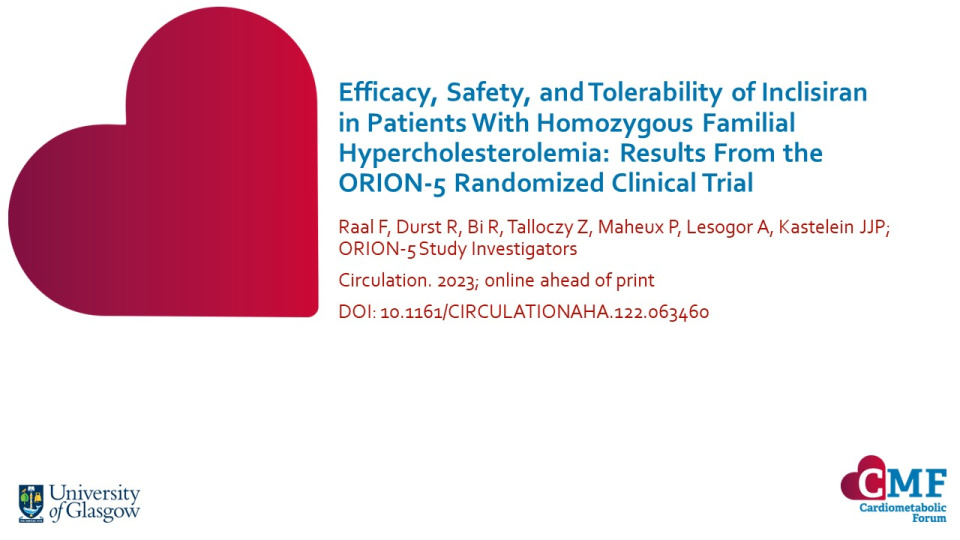Efficacy, Safety, and Tolerability of Inclisiran in Patients With Homozygous Familial Hypercholesterolemia: Results From the ORION-5 Randomized Clinical Trial
Circulation. 2023; online ahead of print DOI: 10.1161/CIRCULATIONAHA.122.063460
A proof-of-concept trial showed that inclisiran, a small interfering RNA that prevents production of the hepatic PCSK9 protein, could lead to durable reductions in LDL-C levels when added to statins and ezetimibe in 3 out of 4 patients with homozygous familial hypercholesterolaemia (HoFH).
ORION-5 was a phase 3, 2-part trial in 56 patients with HoFH and elevated LDL-C levels despite maximum tolerated doses of LDL-C-lowering therapies with or without lipoprotein apheresis. Patients eligible for part 1 (double-blind, 6 months) were randomised 2:1 to receive either 300 mg of inclisiran sodium (equivalent to 284 mg of inclisiran) or placebo. Placebo-treated patients from part 1 were transitioned to inclisiran in part 2 (open-label, 18 months).
The primary end point of percentage LDL-C change from baseline to day 150 was not significant between groups, with a placebo-corrected percentage LDL-C change of -1.68% (95% CI -29.19% to 25.83%; P=0.90). The placebo-corrected percentage change in PCSK9 levels was -60.6% with inclisiran treatment (P<0.0001). No significant differences between the groups were observed in the levels of other lipids and lipoproteins. AEs and SAEs did not differ between the groups throughout the study.
Keywords:

